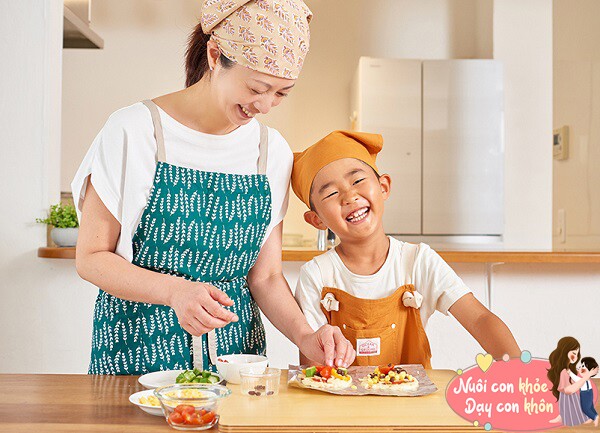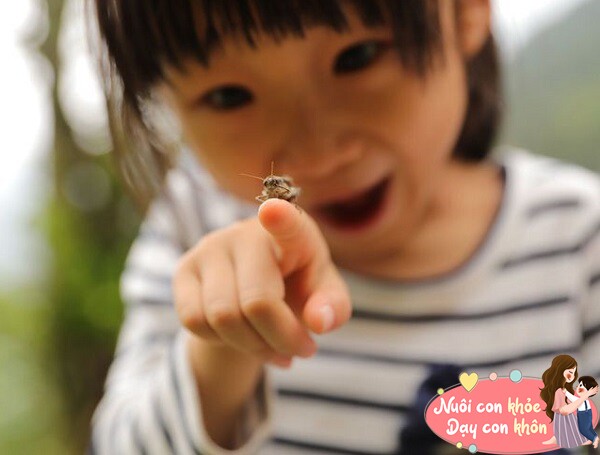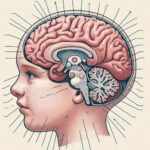Life is a long journey filled with various challenges and problems to solve. To ensure a comfortable and fulfilling future, it is essential for parents to nurture their children’s ability to develop healthy thinking habits from a young age.
According to experts, children who experience two fundamental things tend to exhibit faster thinking capabilities, learn quickly, and excel at problem-solving.


Exposure to Stories and Books
A wise saying goes, “A person is the sum of all the books they have read.” The world is vast, and a child’s steps are small; they cannot be everywhere and experience everything.
However, through reading, children can communicate with sages and absorb their thoughts, knowledge, and experiences. They can also enjoy the world’s scenery without leaving home, indirectly living a life they might not otherwise encounter.
As the saying goes, “There is nothing new under the sun.” If we read extensively and expose ourselves to various books, we will not be surprised by strange future occurrences. The richness of experience and knowledge boosts children’s confidence, assuring them that no problem is too big to tackle as they have a “blueprint” in their minds to refer to.

Children benefit from hearing stories and reading books.
From an early age, when children start to crawl and walk, hearing stories from their mothers and being exposed to different books imprints various positive beliefs in their subconscious minds.
For example: “My mom reads a lot of books to me. Reading is fun, and I enjoy it. Books allow me to connect more with the world. I want to know more and do better…”
Parents don’t need to emphasize the importance of reading; instead, they can proactively provide a rich collection of books and narrate stories in their own words…
Gradually, the stories heard and books read will leave imprints in the child’s mind, becoming a source of quality “nutrition” for their brain development. When they receive textbooks in school, they will feel a sense of familiarity and comfort in their studies.

Experiencing “I Can Do It”
In reality, a child’s confidence, focus, and motivation stem from a series of small, continuous successful experiences.
When a child accomplishes a task, their entire nervous system is engaged and deepened. These quantitative changes eventually lead to qualitative changes, resulting in a positive and efficient brain, along with a positive self-image.
When an individual holds a high opinion of themselves, they are less likely to be perturbed by challenges. This is because they believe, “I am lucky,” “I am worthy,” and “I can do it.” With such a stable core, most children won’t be intimidated by difficult problems.
Therefore, to foster intellectual development, parents should first allow their children to experience enough success. Running through all the brain’s systems creates a database of various positive beliefs, teaching them to think positively and improve their capabilities.

Children need to experience “I can do it.”

How can parents help their children have more successful experiences?
– Allow children to take on tasks within their capabilities and experience the little things, such as “I can put on my shoes,” “I can wash my socks,” or “I can tidy up my toys.” Let them feel the impact of their actions and the sense of independence and accomplishment that comes with it.
– Enrich their lives and offer diverse experiences so they can discover their passions, strengths, and interests.
The best way to do this is to take them outdoors. Nature presents countless novelties, sparking curiosity, a desire to explore, and a willingness to take on challenges and experience “I can do it.”
– Once they discover their interests, facilitate their deep exploration. For example, if they love butterflies, buy them a book with pictures and information about butterflies. After reading, take them to a park with a bug-catching net, magnifying glass, and other tools to interact with real butterflies…
When book content aligns with reality, children become engrossed, transitioning from one discovery to the next and continuously experiencing the joy of acquiring knowledge. Their interests may change, but the experiences will instill values, cultivate profound thinking, and upgrade their brain systems.

Help your child achieve more successful experiences.
– Break down tasks to match their skill level. If a child can accomplish something with effort, they will naturally have more successful experiences.
For instance, if they want to memorize a song but struggle to remember it, ask them to learn one line per day until they master it, and then teach them the next line the following day.
What’s important is that parents acknowledge and celebrate even the smallest signs of progress and success.






































